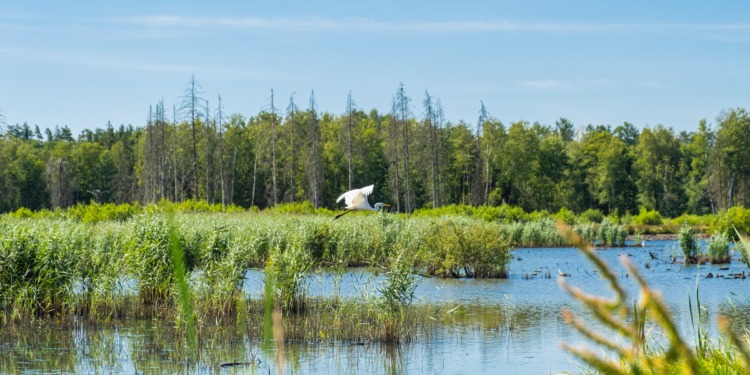COP15, the UN’s biodiversity conference that has been taking place over the past fortnight in Montreal, reached a decisive conclusion in the early hours of this morning as a new global biodiversity deal – known as the Kunming-Montreal framework – was agreed upon by 195 nations.
“It is truly a moment that will mark history as Paris did for the climate,” Steven Guilbeault, Canada’s environment minister, told reporters today.
The overarching aim of this “historic” deal is the conservation and protection of at least 30% of our planet for nature by 2030, a drastic improvement upon the one sixth of continents and one 12th of oceans that are protected today.
Following the recent warnings issued by scientists that humans are currently initiating the Earth’s sixth mass extinction event, this accord is vital to the future of both our planet and ourselves.
#BREAKING – new global agreement for nature ADOPTED!
Countries leave Montreal with an agreement that starts, at least, to heal our relationship to nature. Now delivery of this agreement is key.
Full WWF statement: https://t.co/HLqVccbFZF #NaturePositive #COP15 pic.twitter.com/gv1AIArXxY
— WWF (@WWF) December 19, 2022
In addition to the commitment of protecting one third of the planet by 2030, the Kunming-Montreal pact sets almost two dozen additional targets, most notably including:
- The reduction of pesticide use by a half in order to halt the dramatic declines in insect population being noted in countries across the globe.
- The minimisation of viral spillover from live animal markets, which it is hoped would reduce the likelihood of another pandemic occurring.
- The prioritisation of indigenous-led conservation models and the protection of the rights of indigenous peoples.
However, despite the seemingly extensive nature of the deal, concerns have already been raised that the plan is lacking the level of detail required for it to prove sufficiently effective.
The non-legally binding nature of the pact in particular has raised eyebrows.
Without legal mechanisms for enforcement, it will be trust that underpins the deal, with governments using national biodiversity plans to demonstrate how they are channelling billions of dollars of funding into conservation.
Disappointment has further been voiced regarding the weaker-than-hoped-for language included within the deal, particularly regarding consumption and pesticide use, both of which are significant drivers of biodiversity loss.
The term “nature-positive” – which scientists describe as the ecological equivalent to “net-zero” – also did not feature in the final text, an absence that raises doubts regarding the extent of ambition agreed upon.
The question of financing also proved as contentious as ever during the proceedings.
In the final moments prior to the announcement of the deal, an objection was raised by the Democratic Republic of Congo.
The negotiator representing the nation said that he could not support the agreement since it did not create a new fund for biodiversity to finance efforts towards the conservation targets.
Rather, the deal establishes a fund within the global environment facility (the UN’s existing biodiversity financing mechanism) with the commitment that the creation of a separate fund will be discussed in the future.
Wealthier countries will also be required to send $30 billion annually to small island nations and other developing countries by the end of the decade.
Related Articles: Over Two-Thirds of Wildlife Lost in Less Than a Lifetime | The Mass Extinction Crisis: Can the Private Sector Help Solve It?
Though this is said to be a substantial increase on present funding levels, it pales in comparison to the estimated $700 billion that is required to reverse the biodiversity loss taking place globally.
In light of this deficiency, the Democratic Republic of Congo, as well as other developing nations such as Brazil and Malaysia, did not agree to the pact as it stands.
I welcome the historic outcome of #COP15.
The world has agreed on unprecedented and measurable nature protection and restoration goals and on a Global Biodiversity Fund.And investing into nature also means fighting climate change.
The EU will stay the course.#NextGenerationEU
— Ursula von der Leyen (@vonderleyen) December 19, 2022
Despite these shortcomings though, the Kunming-Montreal framework remains an important step forward in our global efforts to reduce and reverse biodiversity loss.
“Nature is our ship. We must ensure it stays afloat,” said Virginijus Sinkevicus, the EU Commissioner for Environment, Oceans and Fisheries on Saturday.
Indeed, provided nations act with the urgency required by this deal, by 2030 humanity could be enjoying a far sturdier vessel than the fragile rowboat currently keeping our heads above water.
Editor’s Note: The opinions expressed here by the authors are their own, not those of Impakter.com — In the Featured Photo: Habay, Belgium. Featured Photo Credit: Coralie Meurice.










